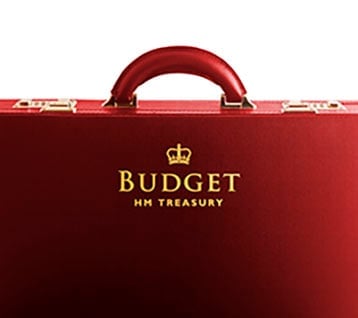The Autumn 2021 Budget was announced on 27th October, and it contains a number of important changes for Certas Energy customers across industries. Many of these are designed to help bring the UK closer to its Net Zero Carbon 2050 goal, supporting other recent initiatives like trials exploring the use of HVO for home heating, and the government’s planned changes to the rules around the use of red diesel. First announced in Budget 2020 and clarified further in October 2021, red diesel fuel duty changes will see many current users lose their entitlement to use the rebated fuel from 1 April 2022.
With many new changes announced at once, we understand it can be challenging to identify exactly which elements are most relevant to your business. With that in mind, we have compiled some key takeaways as a high-level overview:
Business Rates & Duties: new and continued ways to save
- In terms of clear cost savings, one of the most important things to note is that the planned rise in fuel duty will be cancelled, after 12 consecutive years of frozen rates. That means the average car driver will save £1,900: cumulatively all drivers will save £8 billion over five years.
- 100% annual investment allowance (AIA) relief on capital expenditure of £1m will also be extended meaning that businesses can continue to invest in equipment and vehicles while obtaining an immediate tax deduction.
- A 50% business rates discount for the retail, hospitality and leisure sectors in England in 2022-23 has also been announced, up to a maximum of £110,000. This is not only great news for the sector, but also for diversified agricultural businesses such as farms with shops, leisure and other tourist attractions.
Transport/Haulage: solving challenges and innovating
- A number of measures have been announced to support the haulage industry during the ongoing HGV driver shortage, many of which are aimed at attracting drivers to the profession. These include investing £32.5 million in roadside facilities and increasing the availability of temporary working visas.
- Additional savings arise from a freeze in vehicle excise duty and suspension of the HGV road user levy for another 12 months from August 2022.
- The Budget also announces investment in helping the transport industry achieve net zero: £416 million of UK-wide R&D funding for programmes have been promised to help commercialise low and zero emission transport technologies, including trials of three zero emission HGV technologies.
Construction: growing development opportunities
- New contracts await construction companies as the government invests £11.5 billion in the Affordable Homes Programme, to support building up to 180,000 new affordable homes in England from 2021-26. 65% of these will be outside London.
- A £1.8 billion brownfield fund also helps to meet the commitment of £10 billion investment in housing supply, set to unlock over 1 million new homes overalll. A further £3.1 billion will be provided over the next three years to make progress on building 40 new hospitals by 2030. Of the hospitals already announced, 30 will be built outside London and the South East of England.
Agriculture: investing in secure food supply
- Farmers are being given incentives to join the net zero journey: Environmental Land Management schemes will pay them for delivering climate and environmental benefits while producing the nation’s food.
- The impact of Brexit is also being softened: a promised £3.7 billion for farmers and land managers across Scotland, Wales and Northern Ireland is designed to supplement the remaining EU funding that was previously provided for agri-environment and rural development projects.
Infrastructure: enhancing connectivity
- Investing in infrastructure means investing in the UK’s manufacturers, tradespeople and service providers. As part of the government’s efforts to ‘Build Back Better’, over £8 billion has been allocated to fill millions of potholes a year, to resurface roads and to repair bridges, while also delivering over 50 vital local road upgrades. This will ultimately lead to operational and fuel efficiency benefits for all business customers on the road.
- Public transport is also getting a boost, with over £3 billion of bus investment. This comes alongside £5.7 billion for eight English city regions to transform their local transport networks into London-style integrated settlements with a selection of pre-determined upgrade projects.
Net Zero: supporting a greener future
- As the government’s goal of Net Zero Carbon 2050 draws closer, UK businesses can expect to see increasing legislation and Budget investments that prioritise reducing emissions alongside cleaner fuels and technologies. This year, £1 billion has been awarded to the Net Zero Innovation Portfolio, which is accelerating near-to-market low-carbon technology innovations.
- A further £6.1 billion has been provided to back the UK’s Transport Decarbonisation Plan, as well as £180 million to kick-start the development of commercial-scale UK sustainable aviation fuel (SAF) plants and a SAF clearing house to test and certify new fuels. The government’s intention with such investments is clear: to make cleaner solutions an accessible, everyday reality for UK business.
If you have any fuel-related queries as a result of the latest Budget announcement, then please contact your local team for advice:
Call 0345 600 4040 to speak to the team
Request a call back to discuss your needs
TAKE CONTROL OF YOUR FLEETS FUEL
Ready to start fuelling your business' success?
Steamline your fleet operations, control costs, and experience the benefits of Certas Energy Fuel Cards. Get in touch to start saving today.




